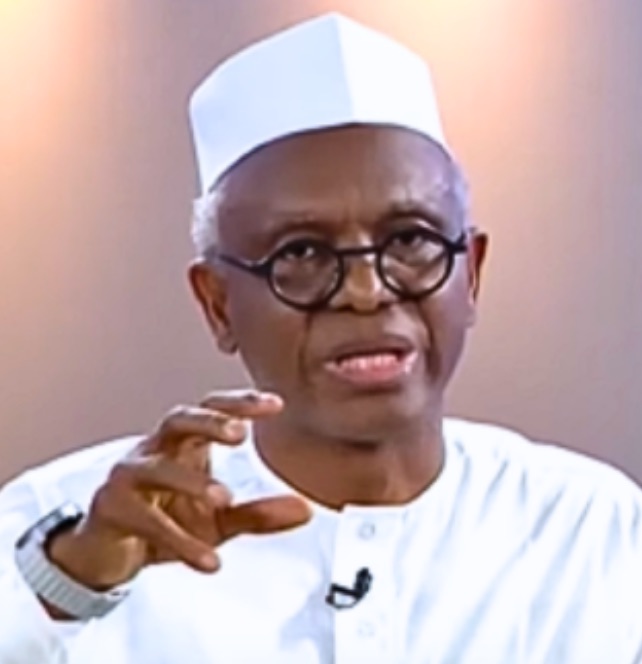•Says voter’s apathy on the increase
From George Onyejiuwa, Owerri
Erstwhile governor of Kaduna State, Mallam Nasir el-Rufai, has called on the Independent National Electoral Commission ( INEC) to deploy electronic voting and real time transmission of results for the 2027 general elections, saying the continued electoral malfeasance has increased Nigerians apathy in exercising their constitutional obligations.
He said there was no compelling reason or excuse why the electoral body cannot acquire and deploy electronic voting systems as it has plenty of time.
El Rufai, who was a special guest at the Odenigbo Lectures organised by Catholic Archdiocese of Owerri, Imo State, noted that voter’s turnout during every presidential polls since 2007 has been declining progressively as voters distrust the electoral process.
“Can we not agree to say farewell to electoral malfeasance and any appearance of it by adopting electronic voting and real-time transmission of results to collation points without interference? I do not see any compelling argument or unbridgeable barrier to adopting electronic voting and transmission of results for the 2027 elections. Based on our experience in preparing for and conducting local government elections in Kaduna State in 2018, I believe there is adequate time today for INEC to acquire and deploy the hard and soft infrastructure needed to deliver this for the entire country at a much lower lifecycle cost than the current, unreliable system that has repeatedly been subject to human manipulation.
“Our country has since 1999 conducted national elections as at when due. Given our stormy history, 25 years of unbroken rule by elected governments indicates that our country is on a pathway to democratic stability. But voter turnout at presidential elections has been declining since 2007. Less than 30 percent of registered voters bothered to vote in 2023, down from over 60 percent in 2003. Also, the integrity of every presidential election result from 1999 to date has been challenged in the courts, except in 2015 when President Goodluck Jonathan personally and commendably chose not to.
“Low voter turnout should worry every democrat because apathy by citizens who feel alienated from the political process could lead to unwelcome fragility. We should engage our citizens to find out why so many consistently forfeit their constitutional right to vote. We should try to ascertain what could encourage them to resume exercising that fundamental democratic right. This, in my view, should also include measures to assure them that the election process is free from threats of violence or coercion, while ensuring that the results would accurately reflect the preferences expressed by voters at the ballot box.”
The former governor added that INEC can adopt electronic voting machines that are designed to do at least five functions that will ‘integrate the simultaneous identification and verification of voter, provide a paper trail of votes cast at every polling unit, shut down the system at the predetermined deadline, provide a printout of the polling unit result for each party agent, presiding officer, the media and the security agencies, and seamlessly transmit the polling unit results on conclusion of voting, whichever is earlier.
“It is a question of how eager we are to make our elections fully transparent and the level of ambition we wish to apply towards strengthening democratic stability. As alluded to earlier, when I was a state governor, we adopted electronic voting for the 2018 and 2021 local government elections in Kaduna State. In both elections, the ruling party lost some local government councils, and we lived with it. The weaknesses in the electronic voting machine process we deployed in Kaduna can be identified and eliminated, and the design robustly strengthened for a national rollout within months, if the political will exists to do so.”
The political culture in Nigeria, he said, “tends to be primarily about contriving an arithmetic for power, for those who have it and for those seeking it. “That arithmetic tends to have little to do with actual policy and coherent governance. It is no surprise that political drama and manoeuvrings take more bandwidth than the substantive discourse on governance in our country. There is an urgent need for our current and prospective office holders to focus not just on an arithmetic of power, but on a national programme that addresses and solves societal problems.”

